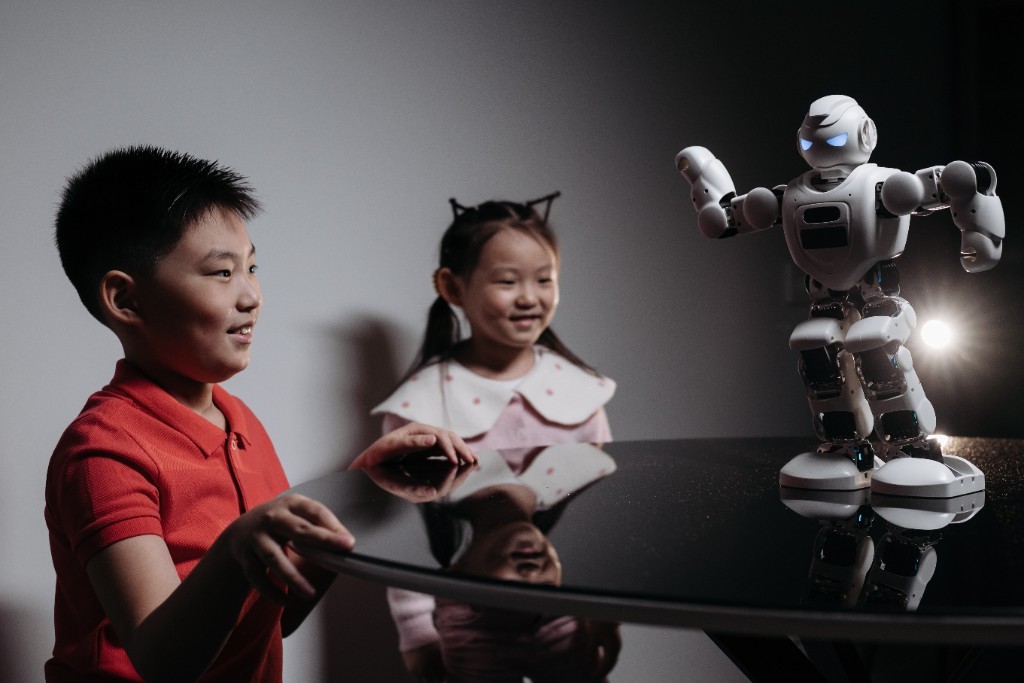In recent years, there has been a significant advancement in the field of Artificial Intelligence (AI) and Augmented Reality (AR). These technologies have become increasingly popular and have the potential to enhance virtual experiences in various fields such as gaming, education, healthcare, and...
The Role of AI in Education: Improving Learning Outcomes and Customization

In recent years, artificial intelligence (AI) has made significant advancements in various fields, and education is no exception. AI has the potential to revolutionize the way we learn and personalize education for individual students. By leveraging AI technologies, educators can create more engaging and interactive learning experiences that cater to each student's unique needs and abilities.
One of the key benefits of AI in education is its ability to provide personalized learning experiences. AI algorithms can analyze vast amounts of data, including student performance, learning preferences, and progress, to create tailored learning paths for each student. This personalized approach allows students to learn at their own pace and focus on areas where they require more help, resulting in more effective learning outcomes.
AI can also enhance the effectiveness of educational content by providing intelligent recommendations and feedback. By analyzing student responses and behaviors, AI algorithms can identify areas of improvement and provide targeted feedback to help students understand concepts better. Moreover, AI-powered recommendation systems can suggest additional learning resources, such as articles, videos, or interactive simulations, that align with the student's interests and learning goals.
By leveraging AI, educators can also automate administrative tasks, freeing up time for more meaningful interactions with students. AI-powered chatbots, for example, can handle routine inquiries, such as scheduling or answering frequently asked questions, allowing teachers to focus on delivering high-quality instruction and providing personalized support to students.
Furthermore, AI can facilitate collaborative learning by enabling real-time communication and collaboration among students and teachers. Virtual classrooms equipped with AI technologies can provide opportunities for students to work together on projects, share ideas, and receive immediate feedback. This fosters a sense of community and engagement, promoting active learning and critical thinking skills.
In conclusion, AI has the potential to revolutionize education by enhancing learning experiences and personalizing education for individual students. With its ability to provide personalized learning paths, intelligent recommendations, and automate administrative tasks, AI can create a more engaging and effective learning environment. By leveraging AI technologies, educators can empower students to become active learners and equip them with the skills they need to succeed in the future.
AI and Education: Transforming the Learning Experience
Artificial Intelligence (AI) has the potential to revolutionize education by transforming the learning experience for students. With AI-powered tools and technologies, educators can personalize learning, enhance student engagement, and provide real-time feedback, ultimately improving educational outcomes.
One of the key benefits of AI in education is its ability to personalize learning. AI algorithms can analyze vast amounts of data on individual students, including their learning styles, preferences, and strengths and weaknesses. This information can then be used to create customized learning plans for each student, tailoring the curriculum and resources to their specific needs. This personalized approach helps students learn at their own pace and in a way that suits their individual learning style, leading to better engagement and understanding.

Enhancing Student Engagement
AI-powered tools can also enhance student engagement by providing interactive and immersive learning experiences. Virtual reality (VR) and augmented reality (AR) technologies, for example, can create simulated environments where students can actively participate and explore concepts. This hands-on approach to learning not only makes the learning process more engaging, but also allows students to apply their knowledge in real-world scenarios, improving their critical thinking and problem-solving skills.
In addition, AI can provide instant feedback to students, allowing them to track their progress and make adjustments in real-time. Adaptive learning platforms can analyze student responses and identify areas where they require additional support or practice. This immediate feedback helps students stay motivated and focused, as they can see their progress and identify areas for improvement. It also allows educators to intervene and provide targeted assistance when required, ensuring that students receive the support they require to succeed.
Empowering Educators
AI technology also empowers educators by automating administrative tasks, allowing them to focus more on instruction and student support. AI-powered chatbots, for example, can handle routine inquiries from students, freeing up educators' time to provide more personalized attention and guidance. AI can also assist educators in analyzing student performance data, identifying patterns and trends that can inform instructional decisions. By leveraging AI technology, educators can become more effective and efficient in their teaching practices.
Furthermore, AI can enable educators to access a wealth of educational resources and materials. AI-powered platforms can curate and recommend relevant learning materials based on individual student needs, saving educators time and effort in finding appropriate resources. This access to a wide range of educational content helps educators create engaging and diverse learning experiences for their students.
Conclusion
AI has the potential to transform the learning experience by personalizing instruction, enhancing student engagement, and empowering educators. By harnessing the power of AI, education can become more inclusive, adaptive, and effective, ensuring that every student has the opportunity to succeed.



